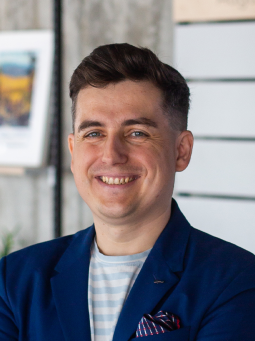What's
E-tika podcast – (Un)ethical biometrics
Biometric systems can improve the quality of our lives in many ways. They help us ensure safe and barrier-free access to airports or football stadiums, but also to our own bank account. In the context of the current pandemic situation, some proponents of biometrics even advocate its use as a hygienic and contactless way of identity control.
On the other hand, there are many concerns about the proliferation of biometry systems, especially how to achieve facial recognition in public spaces, regarding privacy, possible misuse of data by states or private companies, but also questions about the transparency and fairness of such systems.
In today’s podcast you will find out:
- Under what conditions it appropriate to use biometric systems, especially facial recognition systems,
- How to achieve facial recognition, which brings people most of its benefits, but at the same time minimises possible negative impacts,
- Whether and under what conditions it is possible to do biometrics ethically.
Our guest is Ján Záborský. Mr. Záborský works at Innovatrics, which develops biometric systems and he is responsible for the communication. Prior to that, he worked as an economic journalist for almost twenty years.
Innovatrics is one of the founders and supporters of the Kempelen Institute of Intelligent Technology.
The podcast is in Slovak.
You can read the English summary of the episode here.
About E-tika podcast
Digital and information technologies improve and simplify our lives. But they also raise new societal issues and challenges. We should discriminate between the solutions that are technically possible and that are morally good. Sometimes we release technology and only then we discover its effects on people and society. But that may be too late. In the E-tika podcast, we discuss with our guests the social and ethical dimensions of digital technologies.
The E-tika podcast is produced by the multimedia center for contemporary culture, Nástupište 1-12, in cooperation with the Kempelen Institute of Intelligent Technologies. The project was supported by public funds by the “Fond na podporu umenia” fund.
Previous episodes
This season
- Episode 1: Living in disinformation bubbles
- Episode 2: How to deal with biased AI
- Episode 3: Transhumanism
- Episode 4: How to regulate digital technologies
- Episode 5: Of data and men
- Episode 6: Parenthood in digital age
Previous season
If you are interested in the topic, you can also listen to episodes of the previous season.



